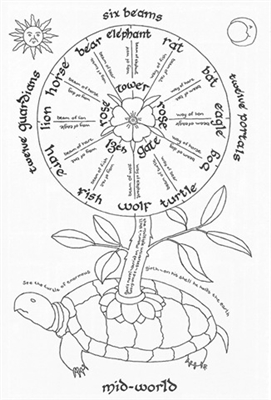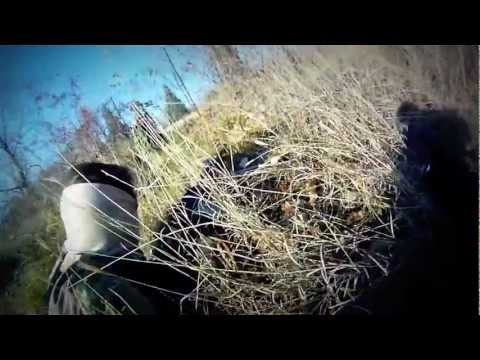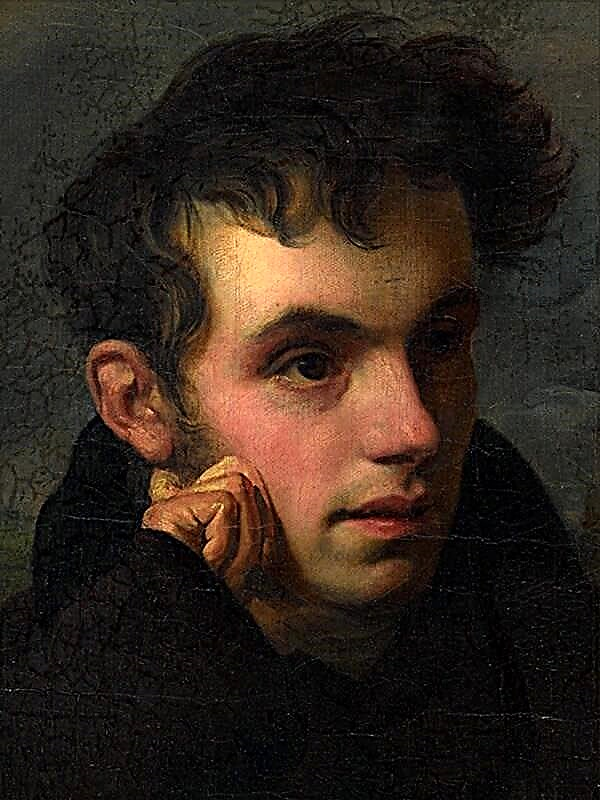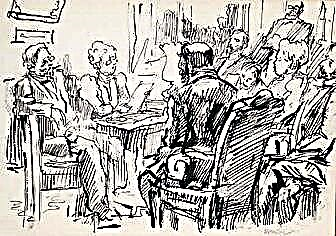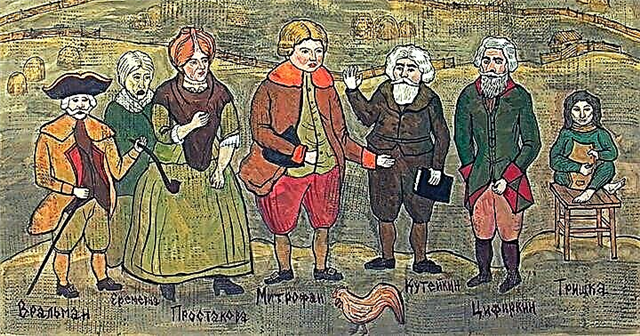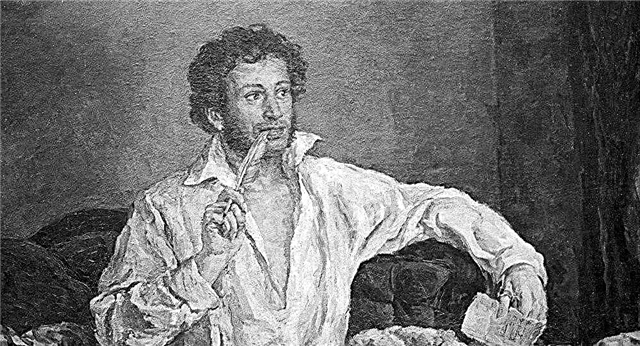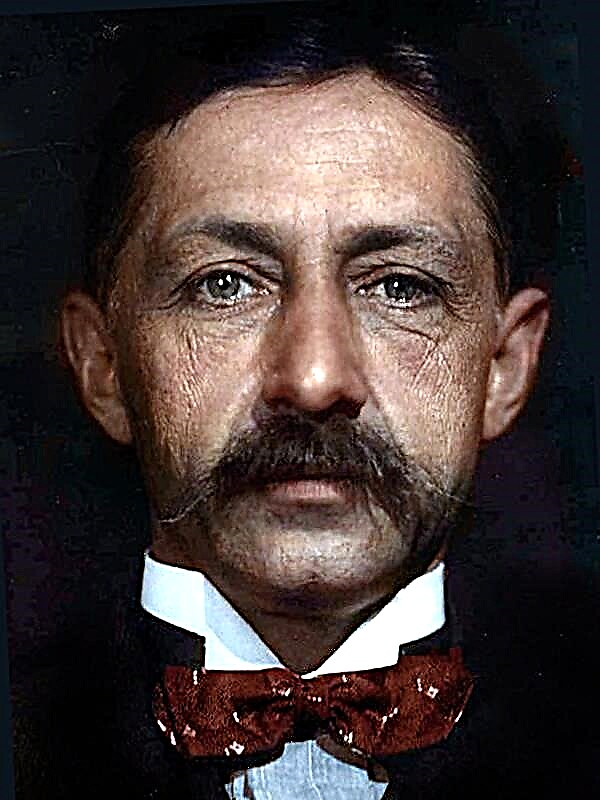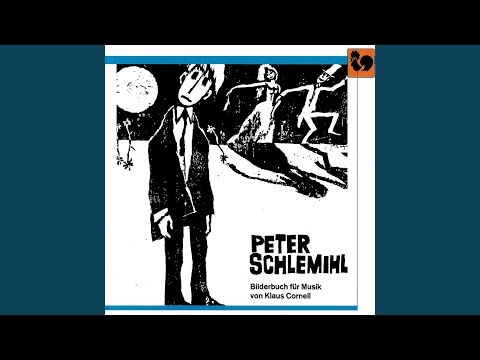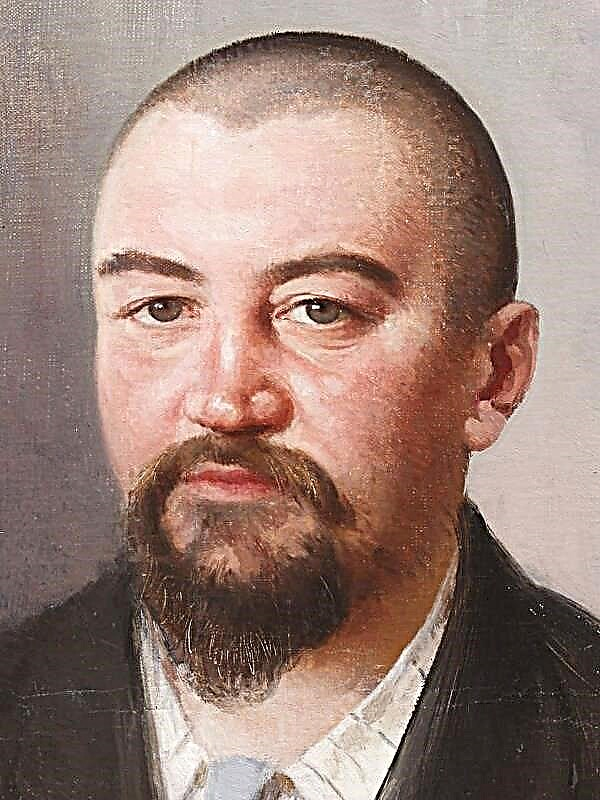The first novel of the Leuvenschöld Ring trilogy takes place on the Hedeby estate, which old General Leuvenschöld receives as a reward from King Charles XII for his faithful service in the war. After the death of the illustrious general, fulfilling the will of the deceased, the ring, also a royal gift, is placed in his grave. The family crypt remains open for several days, which allows the peasant Bordsson to steal the jewel at night. Seven years later, the illegal owner of the ring dies. All these years he was haunted by troubles and adversities: the estate burned down, cattle fell from the rampant plague and Bordsson became impoverished like Job. A pastor who professed a peasant before his death learns about his sin and receives a missing ring. The son of the deceased, Ingilbert, who overhears the confession, forces the pastor to give the ring to him. A few days later Ingilbert was found dead in the forest. Three travelers, accidentally passing by and finding the body, are suspected of murder, and although they do not find the ring, they are sentenced to death. About thirty years later, Marit, the bride of one of the executed, unexpectedly finds a knitted cap at the bottom of the chest in which the Leuvenschöld ring was sewn. How did he get there? Merta, Ingilbert’s sister, recognizes her brother’s hat. Marit decides to return the ill-fated ring to the young Leuvenschöld, Baron Adrian, having sewn the jewel in his hat. Since then, peace in the Hedeby estate has been disturbed. Both the maids and the owners are convinced that the ghost of the old general lives in the house. Baron Adrian is seriously ill. The doctor says that he has only a few hours left to live. But the housekeeper, Malvina Spaak, who is in love with the young Leuvensjöld, lives in the house. She does everything possible to save her beloved. On Marit’s advice, she takes Adrian’s clothes (including a hat with a ring) and puts it in the grave of the old general. As soon as the ring returns to its true owner, Adrian’s illness passes and peace reigns in the house.
The second novel of the Charlotte Leuvenschild trilogy takes place in Karlstad, its characters are the family of Baroness Beata Ekenstedt from the Leuvenschild clan. This educated, charming and worshiped woman has two daughters and a son. Son, Karl-Arthur, she worships. He passes the entrance exams to the famous Uppsala University brilliantly, standing out among fellow students with intelligence and erudition. Once a week he sends letters home, and the Baroness read them out loud to her relatives at Sunday dinners. The son is convinced that his mother could become a great poetess, if she did not consider her duty to live only for children and her husband; all his letters are imbued with love and admiration. At the university, Karl-Arthur met Freeman, an ardent supporter of pietism (a religious movement within the Lutheran church, which preached asceticism in everyday life and the renunciation of all worldly pleasures. - N. V.), and fell under his influence. Therefore, having received the title of master and becoming a doctor of philosophy, he also passes the exam for the pastor. Parents did not like that the son chose such a modest career.
Karl-Arthur gets a place in a pastoral manor in Korschürk and becomes an adjunct pastor. The pastor and the pastor are elderly people, they roam around the house like shadows, but their distant relative, Charlotte Leuvenschöld, a cheerful, lively, lively girl, taken in the house as a companion, breathed new life into them. Charlotte is well versed in everything related to pastoral duties, so she teaches Karl-Arthur how to baptize children and how to speak at prayer meetings. Young people fall in love with each other and announce their engagement. Charlotte understands that Karl-Arthur needs a decent salary to get married, and she is trying to convince the groom to take care of the teaching position, but he does not want to hear about it. Therefore, one day, wanting to scare Karl-Arthur, the girl publicly declares that, despite the love for the groom, if the wealthy factory owner Shagerström adores her, then she will not refuse him. Karl-Arthur and his guests laugh at Charlotte’s words, taking them for a joke.
Reaching the Shagerström careless words dropped by the girl, and he decides to meet her. At the pastor's homestead, Shagerström is given a warm welcome, as both the pastor and the pastor are against Charlotte’s engagement to a man who resolutely refuses to think about maintaining his family. But the proud Charlotte is offended and throws indignantly to Shagerström: “How dare you come here and ask for my hand if you know that I am engaged?” A worthy rebuff from Freken Leuvenschöld has even more to her the richest man in Korschürk. Karl-Arthur doubts the bride and suspects that she refused Shagerström only because he hopes to see the future pastor-adjunct as head of the cathedral or even a bishop. Charlotte, after hearing accusations of double-heartedness and self-interest, does not consider it necessary to make excuses. The young people quarrel, and Karl-Arthur exclaims in anger that now he will only marry the one whom God himself will choose for him, implying that his first unmarried woman will meet his wife on his way. The choice falls on Anna Sverd, a poor charioter from Dalecarlia, a remote highlands, a young and beautiful girl. She did not hesitate to agree to unite her fate with a man who would like to remain poor for life, rejecting wealth and earthly goods, - says Karl-Arthur. Dalekarliyska, having barely recovered from an unexpected offer, not believing her happiness, cherishes the dream of living in her own house in abundance and contentment.
Meanwhile, Shagerström, learning about the gap between Charlotte and Karl-Arthur, is trying to reconcile the young, believing that their happiness was destroyed through his fault. He offers Karl-Arthur the position of factory pastor in the mines, but the young man rejects such an advantageous offer. By this time, the assistant pastor had already become famous in his parish. Possessing the gift of eloquence, the young priest attracts parishioners with soulful sermons who gather from afar for Sunday service and catch his every word with bated breath. Charlotte, who continues to love Karl-Arthur and is struggling with the termination of the engagement, nevertheless arouses hostility among others and serves as an object of ridicule and bullying. Thea Sundler, the organist's wife in love with Karl Arthur, is to blame. A hypocritical and insidious woman, she sees her enemy in Charlotte. It was she who unambiguously hints to Karl-Arthur that Charlotte repented of her refusal to Shagerström and intentionally quarreled with the groom so that he broke the engagement. In this evil slander, Thea made him believe not only Karl-Arthur, but also everyone around him. Charlotte tries to write to Baroness Ekenstedt, the only person in the world who understands her, to write a letter and tell him the whole truth about what happened, but, after reading it, the girl notices that, wanting to prove her own innocence, she portrays Karl-Arthur's actions in a very unsightly form . Charlotte is unable to inflict grief on her beloved failed mother-in-law, therefore she destroys the letter and for the sake of peace between mother and son silently suffers vain accusations. But peace in the Ekenstedt family is already broken. When the Baroness finds out about her son’s intention to marry a Dal-Karelian woman, she, having seen Charlotte only once, but having managed to fall in love with an independent and intelligent girl, impedes this marriage in every way. The adamant Karl-Arthur, not wanting to give in to his parents and breaking off relations with them, marries Anna Sverd.
The young wife hopes for a separate pastoral manor with a maid in the house and a large household. What was her disappointment when she saw a house, consisting of a room and a kitchen, and found out that she would have to do the housework, cook the stove and everything else around the house. All hopes are crumbling in an instant. In addition, Thea Sundler, whom Karl-Arthur considers her friend (not realizing her true feelings) and who entrusts the arrangement of her new home, causes severe pain to Anna Sverd. The girl sees an old single sofa in the kitchen, and Theia explains that she will be comfortable sleeping here. The unfortunate far-off woman immediately realizes that in this house she has the role of a maid. She becomes desperate, not finding understanding and love from Karl-Arthur, and only her strong, hardworking nature helps her pass the test. She has no time to delve into her own torment, since Karl-Arthur soon rescues ten orphans who threatened to be put up and sold at auction, and takes them under his care.
Now Anna Sverd comes to life: she gives all her strength and love to children, and the kids pay her in return. Work is constantly in full swing in the house, laughter does not cease, but Karl-Arthur is unhappy that the noise of children interferes with his studies. And one fine day he informs his wife that he is giving the children to their distant relatives who do not mind it. Anna is heartbroken, the severity of parting with children is unbearable for her, and she leaves from Karl-Arthur. Upon learning that she will have a child, she goes to the Baroness and receives the money she needs to purchase her own home.
Charlotte Leuvenschöld, who married Shagerström, is nevertheless interested in the life of Karl-Arthur. Therefore, upon learning that he had decided to distribute orphans, she was very surprised at this inhuman act. The astute Charlotte understands that Karl-Arthur did this not without the influence of Thei Sundler. She meets Karl-Arthur, trying to protect him from this cruel and vengeful woman, but sees that she is already a different person and it is unlikely to save him.
One day, Charlotte is invited to visit her distant relative, Baron Adrian Leuvenschöld, the wealthy owner of Hedeby. He tells her about the terrible death of his brother, Joran, who had long led a life of dissolute, wandered with gypsies and froze at night in his wagon. Joran had a daughter, and Adrian, knowing that Charlotte has no children, invites her to take the girl up. Charlotte happily agrees, but the child is abducted. Charlotte and Hadrian chase thieves, and on the road Hadrian indulges in memories. Malvina Spaak was in love with his father, Adriana, and he owed her life to her. Therefore, Adrian Sr. sharply condemned his sons when he realized that they did not like Thea Sundler, the daughter of Malvina. Moreover, when Joran began to scare Theia with the ghost of an old general, and she told her mother everything, there was no other choice but to flee from home.
Since that time, Joran began a vagabond life. Adrian believes that it was little Thea who condemned Joran to death in a ditch near the curb. In addition, Adrian reports that the child was kidnapped by none other than Karl-Arthur. It turns out that he had sank a long time ago, mired in lies, crimes, poverty. This is facilitated by Thea Sundler, who has long shared his fate. Saving a child, Adrian perishes, Karl-Arthur miraculously remains alive thanks to Charlotte. Thea is trying to force Karl-Arthur back, but Charlotte saves him and takes him away from this low, capable of bringing only suffering to a woman.
Eight years passed, and in 1850 Karl-Arthur returned to Korschurk from Africa, where he was a missionary. Finally, he found his true place in life, now he has learned to love his neighbors. When Anna Sverd heard his sermon and felt kindness in his every word, she realized that this was the same person "to whom she once sent obeisances with migratory birds."

